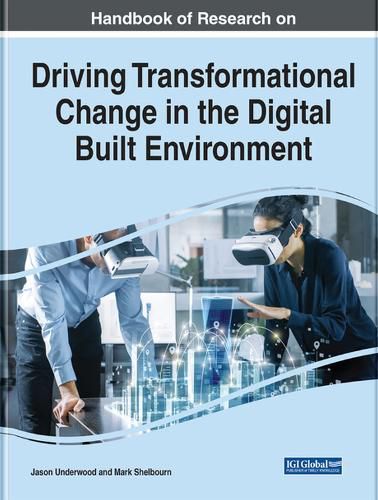Readings Newsletter
Become a Readings Member to make your shopping experience even easier.
Sign in or sign up for free!
You’re not far away from qualifying for FREE standard shipping within Australia
You’ve qualified for FREE standard shipping within Australia
The cart is loading…






This title is printed to order. This book may have been self-published. If so, we cannot guarantee the quality of the content. In the main most books will have gone through the editing process however some may not. We therefore suggest that you be aware of this before ordering this book. If in doubt check either the author or publisher’s details as we are unable to accept any returns unless they are faulty. Please contact us if you have any questions.
The construction industry is amidst a digital transformation that is focused on addressing well-documented issues and calls for significant improvements and changes through increased productivity, whole-life value, client focus, reduction of waste, and being more sustainable. The key aspect to driving change and transformation is the education and upskilling of the required workforce towards developing the required capacities. Various approaches can be taken to embed digital construction within education and through collaborative efforts in order to drive change and facilitate improvements. The Handbook of Research on Driving Transformational Change in the Digital Built Environment focuses on current developments in practice and education towards facilitating transformation in the built environment. This book provides insight, from a practice perspective, in relation to the client’s understanding, digitally enabled collaboration, interoperability and open standards, and maturity/capability. Covering topics that include digital transformation and construction, digitally enabled infrastructure, building information modelling, collaborative digital education, and the digital built environment, this book is an ideal reference source for engineers, professionals, and researchers in the field of digital transformation as well as doctoral scholars, doctoral researchers, professionals, and academicians.
$9.00 standard shipping within Australia
FREE standard shipping within Australia for orders over $100.00
Express & International shipping calculated at checkout
This title is printed to order. This book may have been self-published. If so, we cannot guarantee the quality of the content. In the main most books will have gone through the editing process however some may not. We therefore suggest that you be aware of this before ordering this book. If in doubt check either the author or publisher’s details as we are unable to accept any returns unless they are faulty. Please contact us if you have any questions.
The construction industry is amidst a digital transformation that is focused on addressing well-documented issues and calls for significant improvements and changes through increased productivity, whole-life value, client focus, reduction of waste, and being more sustainable. The key aspect to driving change and transformation is the education and upskilling of the required workforce towards developing the required capacities. Various approaches can be taken to embed digital construction within education and through collaborative efforts in order to drive change and facilitate improvements. The Handbook of Research on Driving Transformational Change in the Digital Built Environment focuses on current developments in practice and education towards facilitating transformation in the built environment. This book provides insight, from a practice perspective, in relation to the client’s understanding, digitally enabled collaboration, interoperability and open standards, and maturity/capability. Covering topics that include digital transformation and construction, digitally enabled infrastructure, building information modelling, collaborative digital education, and the digital built environment, this book is an ideal reference source for engineers, professionals, and researchers in the field of digital transformation as well as doctoral scholars, doctoral researchers, professionals, and academicians.